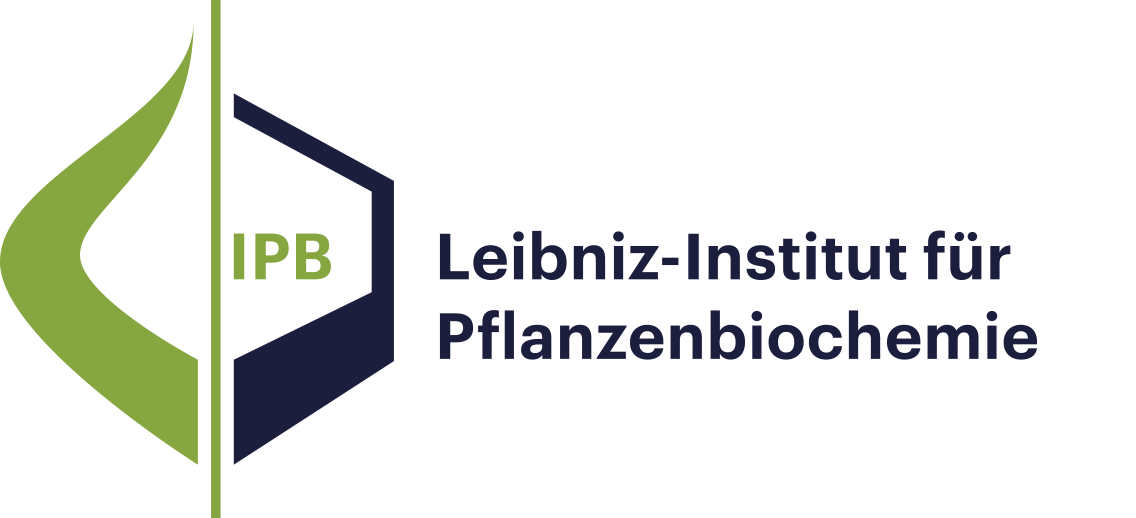Publikationen Program Center MetaCom
- Results as:
- Print view
- Endnote (RIS)
- BibTeX
- Table: CSV | HTML
Publications
Publications
Publications
Diese Seite wurde zuletzt am 03 Sep 2024 geändert.
Research Mission and Profile
Molecular Signal Processing
Bioorganic Chemistry
Biochemistry of Plant Interactions
Cell and Metabolic Biology
Independent Junior Research Groups
Program Center MetaCom
Publications
Good Scientific Practice
Research Funding
Networks and Collaborative Projects
Symposia and Colloquia
Alumni Research Groups
Publikationen
Publikationen Program Center MetaCom
Publications
Mass spectral libraries are collections of reference spectra, usually associated with specific analytes from which the spectra were generated, that are used for further downstream analysis of new spectra. There are many different formats used for encoding spectral libraries, but none have undergone a standardization process to ensure broad applicability to many applications. As part of the Human Proteome Organization Proteomics Standards Initiative (PSI), we have developed a standardized format for encoding spectral libraries, called mzSpecLib (https://psidev.info/mzSpecLib). It is primarily a data model that flexibly encodes metadata about the library entries using the extensible PSI-MS controlled vocabulary and can be encoded in and converted between different serialization formats. We have also developed a standardized data model and serialization for fragment ion peak annotations, called mzPAF (https://psidev.info/mzPAF). It is defined as a separate standard, since it may be used for other applications besides spectral libraries. The mzSpecLib and mzPAF standards are compatible with existing PSI standards such as ProForma 2.0 and the Universal Spectrum Identifier. The mzSpecLib and mzPAF standards have been primarily defined for peptides in proteomics applications with basic small molecule support. They could be extended in the future to other fields that need to encode spectral libraries for nonpeptidic analytes.
Publications
The Human Proteome Organization (HUPO) Proteomics Standards Initiative (PSI) has been successfully developing guidelines, data formats, and controlled vocabularies (CVs) for the proteomics community and other fields supported by mass spectrometry since its inception 20 years ago. Here we describe the general operation of the PSI, including its leadership, working groups, yearly workshops, and the document process by which proposals are thoroughly and publicly reviewed in order to be ratified as PSI standards. We briefly describe the current state of the many existing PSI standards, some of which remain the same as when originally developed, some of which have undergone subsequent revisions, and some of which have become obsolete. Then the set of proposals currently being developed are described, with an open call to the community for participation in the forging of the next generation of standards. Finally, we describe some synergies and collaborations with other organizations and look to the future in how the PSI will continue to promote the open sharing of data and thus accelerate the progress of the field of proteomics.
Publications
The 2017 Dagstuhl Seminar on Computational Proteomics provided an opportunity for a broad discussion on the current state and future directions of the generation and use of peptide tandem mass spectrometry spectral libraries. Their use in proteomics is growing slowly, but there are multiple challenges in the field that must be addressed to further increase the adoption of spectral libraries and related techniques. The primary bottlenecks are the paucity of high quality and comprehensive libraries and the general difficulty of adopting spectral library searching into existing workflows. There are several existing spectral library formats, but none captures a satisfactory level of metadata; therefore, a logical next improvement is to design a more advanced, Proteomics Standards Initiative-approved spectral library format that can encode all of the desired metadata. The group discussed a series of metadata requirements organized into three designations of completeness or quality, tentatively dubbed bronze, silver, and gold. The metadata can be organized at four different levels of granularity: at the collection (library) level, at the individual entry (peptide ion) level, at the peak (fragment ion) level, and at the peak annotation level. Strategies for encoding mass modifications in a consistent manner and the requirement for encoding high-quality and commonly seen but as-yet-unidentified spectra were discussed. The group also discussed related topics, including strategies for comparing two spectra, techniques for generating representative spectra for a library, approaches for selection of optimal signature ions for targeted workflows, and issues surrounding the merging of two or more libraries into one. We present here a review of this field and the challenges that the community must address in order to accelerate the adoption of spectral libraries in routine analysis of proteomics datasets.
Diese Seite wurde zuletzt am 03 Sep 2024 geändert.

